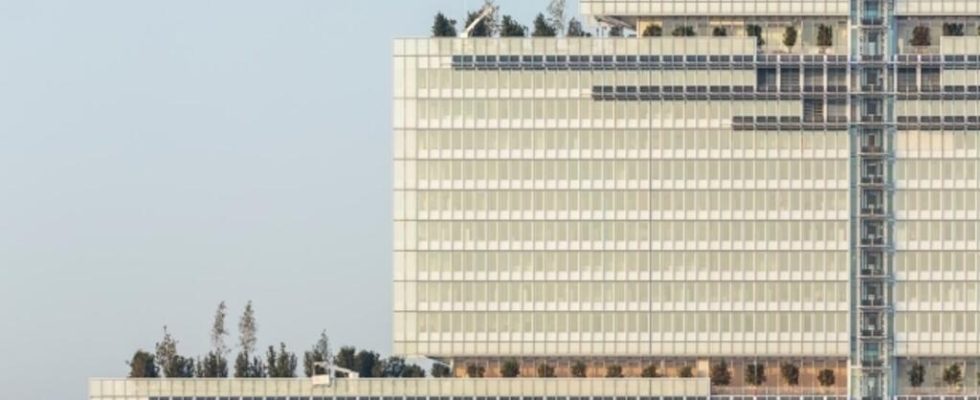” The biggest operation in the history of the PNF “: the financial prosecution carried out massive searches on Tuesday targeting five major banks in France, suspected of having used a tax scheme on dividends called “CumCum”, which could have cost more than a billion euros to the tax.
It is an operation of unprecedented scale, according to a source familiar with the matter, carried out this Tuesday morning in Paris and at La Défense (Hauts-de-Seine), 16 magistrates (out of 19 in office) of the PNF, 150 investigators (out of more than 250 in post) from the financial judicial investigation service (SEJF), as well as six German prosecutors from the Cologne public prosecutor’s office.
In a press release, the PNF confirmed this information from the newspaper on Tuesday morning The world that five banking and financial establishments located in Paris and La Défense are targeted by these operations. These are BNP Paribas, Exane (fund manager, subsidiary of BNP), Société Générale, Natixis and HSBC, according to the source familiar with the matter.
The first two are the subject of investigations by the PNF for suspicions of aggravated tax evasion and laundering of aggravated tax evasion, after reports from the tax authorities. The other three are under investigation for aggravated money laundering and aggravated tax evasion. All of these investigations were opened in mid-December 2021, according to the PNF.
A Societe Generale spokesperson confirmed to AFP that a search had been underway at the group’s headquarters since Tuesday morning, without knowing what the purpose was. Exane did not comment, while the other banks did not respond to AFP. On Twitter, the Minister Delegate for Public Accounts Gabriel Attal confirmed that a ” extensive search was conducted by the SEJF which he plans to announce ” soon a major reinforcement as part of its anti-fraud plan.
A harm that goes beyond only » the billion euros for the French tax authorities
According to the source familiar with the matter, BNP Paribas and Exane were targeted respectively by a mandatory denunciation and a complaint from the tax administration (General Directorate of Public Finance, DGFiP), allowing prosecution for tax evasion. The other three banks have not been the subject of such a denunciation, but are among the establishments targeted at the end of 2018 by a complaint filed by a collective “Citizens in organized gangs” around the boss of PS deputies Boris Vallaud. In a tweet, this one is ” bliss Tuesday of the PNF investigation after a complaint that ” finally bearing fruit “.
A group of sixteen media had revealed in 2018 via the ” CumEx Files these suspicions of giant tax evasion, which were the subject of investigations in France by the tax administration as early as 2017. The amount of the damage, initially assessed by the consortium at 55 billion euros for ten countries, had been largely revised upwards in 2021 by these media, rising to 140 billion euros over twenty years. But the source familiar with the matter tempered the assessment of the damage concerning the French tax authorities, explaining that the total amount of tax adjustments for these five banks exceeded “ only » the billion euros.
How the “CumCum” tax scheme works
The so-called “CumCum” practice, in financial jargon, consists of escaping the tax on dividends which must in principle be paid by foreign holders of shares in listed French companies. To take advantage of the scheme, these owners of shares, small savers or large investment funds, entrust their securities to a bank when the tax is collected, thus escaping taxation.
The banks would have played an intermediary role, while charging a commission to the holders of shares. Mentioned by the press among the banks which could have used this scheme, Crédit Agricole via its subsidiary Cacib was not one of the establishments targeted by the searches on Tuesday morning, according to the close source.
During previous revelations in 2021, the Crédit Agricole group had told AFP that it ” did not offer arrangements to its clients for the purpose of dividend arbitrage nor did it carry out dividend arbitrage transactions for its own account “, but that he carried out hedging transactions ” in compliance with the legal, tax and regulatory rules in force “.
(With AFP)
